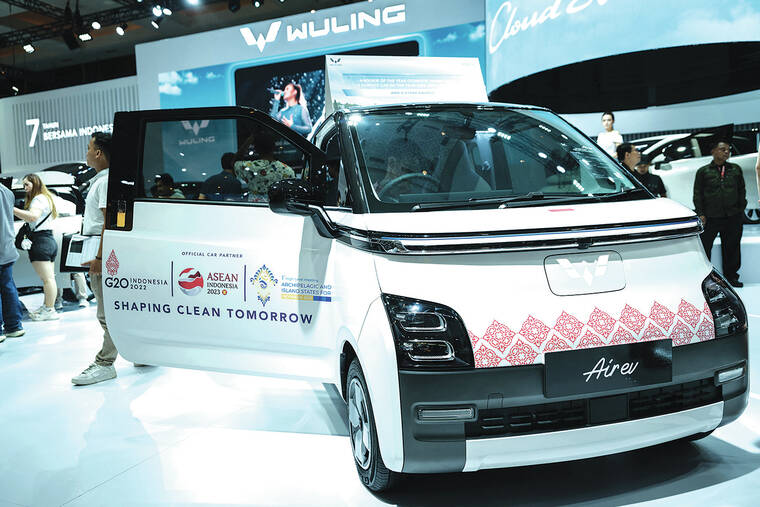Citing unfair trade, Biden hikes tariffs on Chinese EVs, batteries
The Biden administration on Tuesday said it will raise tariffs on electric vehicles and other products from China in response to anti-competitive practices it found harmed American businesses and workers.
The increased tariff rates follow a review by U.S. Trade Representative Katherine Tai, which found that China continues to engage in practices such as forcing U.S. companies to share their technology and intellectual property theft.
The move boosts some tariff levels put in place by the Trump administration in 2018 while instituting others for the first time.
National Economic Adviser Lael Brainard said on a call with reporters that China was using these tactics to “power its own growth at the expense of others” and that it is flooding the global marketplace with products that are underpriced due to unfair practices.
“The President is taking a tough strategic approach combining investment at home, with enforcement against China in key sectors, in contrast with the prior administration that failed to follow through either on investments … or on China’s trade commitments,” Brainard said.
Under these “section 301” tariffs, the rate on Chinese EVs will increase from 25 percent to 100 percent this year, while the rate on lithium-ion EV batteries will increase from 7.5 percent to 25 percent.
Chinese-made electric cars are not available for sale in the U.S., although they proliferate elsewhere, accounting for nearly 60 percent of all EVs sold globally in 2023. The Alliance for American Manufacturing in February said the introduction of Chinese EVs to the American market “could be an extinction-level event for the U.S. auto sector.”
Currently, Chinese automaker BYD is able to manufacture an EV cheaper than the least expensive American electric car. While some have argued these autos could speed up the transition away from gasoline engines, lawmakers including Sen. Sherrod Brown, D-Ohio, have called for them to be banned due to fears they would undermine domestic manufacturers.
“Generations of free trade agreements that prioritize multinational corporations have devastated our communities, harmed our economy, and crippled our job market,” Brown and six Democratic colleagues wrote in a May 1 letter to the administration. “Keeping the 301 tariffs in place and increasing the tariffs where necessary maintains a critical piece of a pro-worker trade agenda.”
The tariff rate on semiconductors and solar cells will increase from 25 percent to 50 percent. The administration will also increase tariffs on certain types of steel and aluminum, ship-to-shore cranes, and medical products including syringes and personal protective equipment.
The move comes as the administration continues to distribute federal funds from the 2021 bipartisan infrastructure law, a domestic semiconductor manufacturing law and the 2022 climate reconciliation law. These laws each include provisions intended to help onshore domestic manufacturers, particularly in areas needed for the transition to a net-zero greenhouse gas emission economy.



